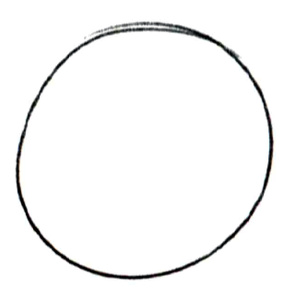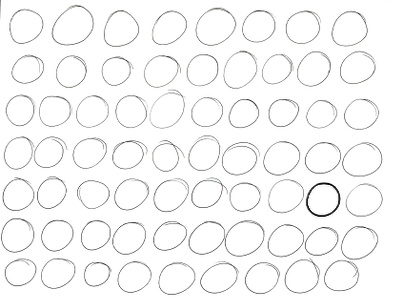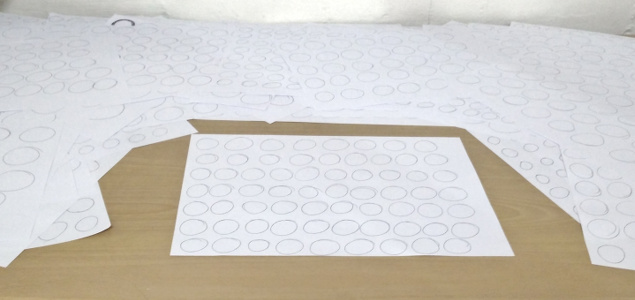By omission

Within the fairly obscure subculture of speedrunning, that is, trying to complete a game in the fastest possible time, there is an even more obscure sub-subculture of tool-assisted speedrunning. In a TAS, the goal is to produce, by any means necessary, a sequence of inputs that completes the game in the fastest time. These inputs often exploit frame-precise timings and bugs, and are usually recorded by a person in super-slow motion or programmed directly using code. That can lead to some, uh, fairly chaotic gameplay.
The interesting thing, though, is that no matter how bizarre and inhuman this input sequence is, there's no reason it couldn't be generated by a person, if that person was a superhuman who never made any mistakes. In fact, there are robot controllers that plug into a game console and replay a given TAS. It's interesting to consider that just recording and replaying might be the only tool you need; if you could perform even one tiny section of a TAS in real time, you could record that input, and with enough reloads and retries eventually build a perfect run entirely out of human input.
Most games already have a concept of loading and saving, or restarting the section you're on when you lose. From your perspective as a player it might take five or ten tries to get past a level, which is not that impressive. However, the game world is reset every time you fail, and from its perspective you just breeze through it in one perfect run. In a sense, all games are tool-assisted depending on which timeline you observe. Some games make it more explicit by including time travel mechanics, but really time travel is a feature of any game where you can load and save.
This concept of which timeline you observe, which attempts you get to see and which ones you don't, is quite powerful. Powerful enough to build a human-powered TAS, if you have enough patience. Powerful enough that almost all games use it to present you with problems that you can't solve on your own, but can solve with a time machine and enough attempts. And powerful enough that we use it in our everyday lives to present an impression of ability far higher than we naturally possess.

In a film, actors perform hundreds of takes that are not used, but we don't get to see them; we only see the final version, with one timeline stitched together from all the best runs. We take fifteen photos and only post the best one, leaving no trace of the other fourteen failed timelines. As I write this, I am repeatedly creating and deleting sentences, rewording and editing. When it's posted, you will only read the parts that made the cut, a representation of what I could write if I did everything perfectly the first time. But I didn't.
Of course, doing things this way genuinely does lead to a better result. We'd rather see the one amazing performance out of a hundred, or one good photo out of fifteen. But in this there's a kind of deception, because we can't ever really live up to the examples we see. The timelines of others might be flexible, but our own is fixed. When you create something, you have to endure every tiny mistake, every false start and misstep. When it's finally done, others will only see the successes, but you'll remember the failures.
For this reason, live performance has a kind of humanity and honesty that's hard to find anywhere else. An actor on a stage might have practiced more than you, or be more skilled than you, but they are on the same timeline. Everything that they are doing, you could be doing. And when they slip up, you feel a connection to your own mistakes, your own winding and imperfect path. They're not better than you, they're just you with better lighting.
But for those of us not in live performance, there is a risk that what we make ends up lacking that connection, forsaking that sense of truth in exchange for polish and a dream of perfection. One audio log near the end of The Witness makes the point that it can be worth putting traces of the process back into the work, to avoid putting up a false front by appearing to never make mistakes. I think we owe it to those who come after us to leave a bit of our humanity in the work, to leave those imperfect timelines unpruned.
I tried something like this in an earlier post on writing and editing, where you can hit replay and watch me write it in real time. I felt nervous writing that, knowing that there was no hiding my missteps. Strange, given how much I value seeing the process behind the work of others, but when you get used to polishing away your mistakes it can be hard to stop.
I don't think seeing how something was made decreases its value, and I think we'd be better off seeing it more often. For better or worse, we aren't machines, and we can't generate a flawless series of inputs every time. Sure, it might be scarier to let people see your imperfections, but why hide them when all it does is deceive others? Why pretend to be perfect by omission?
